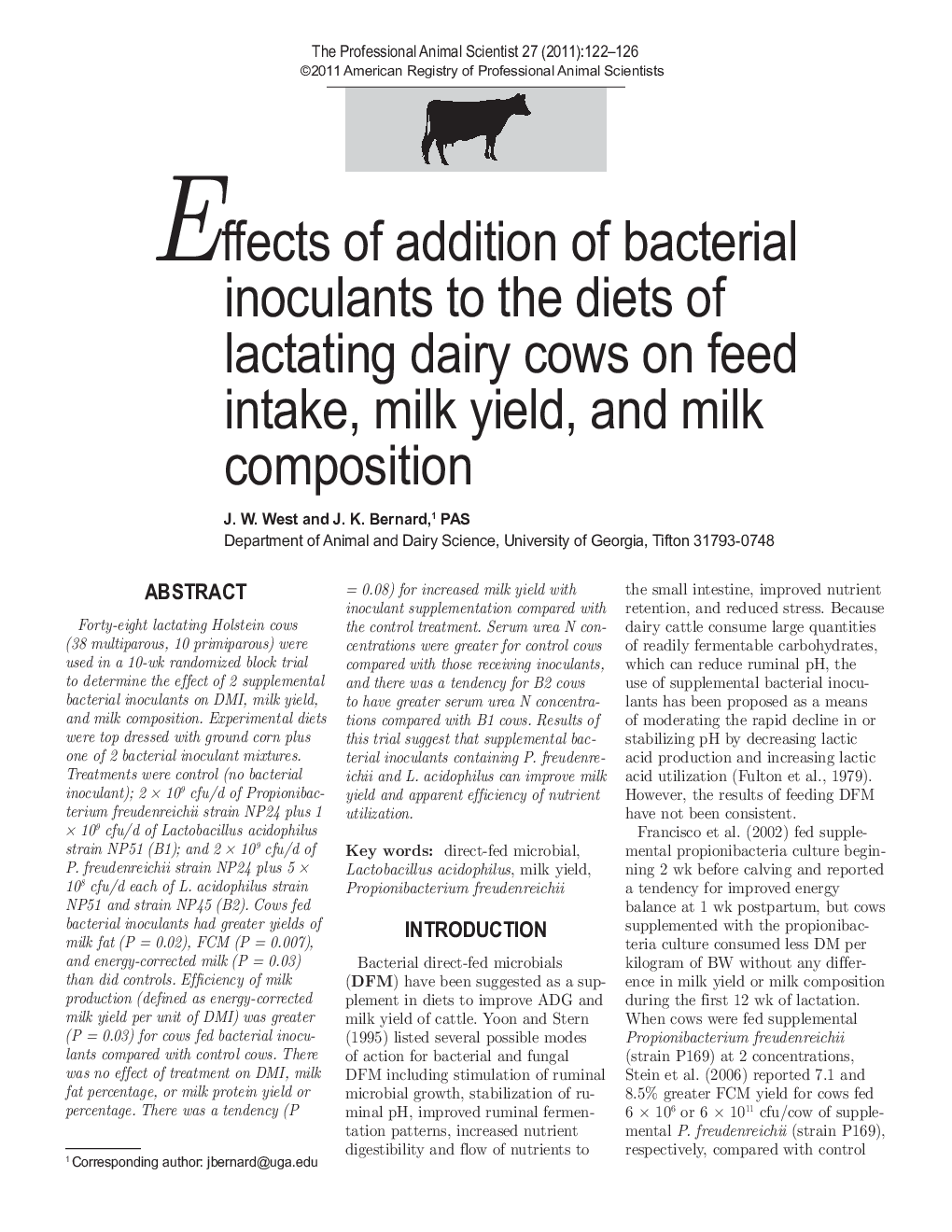| Article ID | Journal | Published Year | Pages | File Type |
|---|---|---|---|---|
| 2454141 | The Professional Animal Scientist | 2011 | 5 Pages |
Abstract
Forty-eight lactating Holstein cows (38 multiparous, 10 primiparous) were used in a 10-wk randomized block trial to determine the effect of 2 supplemental bacterial inoculants on DMI, milk yield, and milk composition. Experimental diets were top dressed with ground corn plus one of 2 bacterial inoculant mixtures. Treatments were control (no bacterial inoculant); 2 Ã 109Â cfu/d of Propionibac-terium freudenreichii strain NP24 plus 1 Ã 109Â cfu/d of Lactobacillus acidophilus strain NP51 (B1); and 2 Ã 109Â cfu/d of P. freudenreichii strain NP24 plus 5 Ã 108Â cfu/d each of L. acidophilus strain NP51 and strain NP45 (B2). Cows fed bacterial inoculants had greater yields of milk fat (P = 0.02), FCM (P = 0.007), and energy-corrected milk (P = 0.03) than did controls. Efficiency of milk production (defined as energy-corrected milk yield per unit of DMI) was greater (P = 0.03) for cows fed bacterial inoculants compared with control cows. There was no effect of treatment on DMI, milk fat percentage, or milk protein yield or percentage. There was a tendency (P = 0.08) for increased milk yield with inoculant supplementation compared with the control treatment. Serum urea N concentrations were greater for control cows compared with those receiving inoculants, and there was a tendency for B2 cows to have greater serum urea N concentrations compared with B1 cows. Results of this trial suggest that supplemental bacterial inoculants containing P. freudenreichii and L. acidophilus can improve milk yield and apparent efficiency of nutrient utilization.
Related Topics
Life Sciences
Agricultural and Biological Sciences
Animal Science and Zoology
Authors
J.W. West, J.K. PAS,
